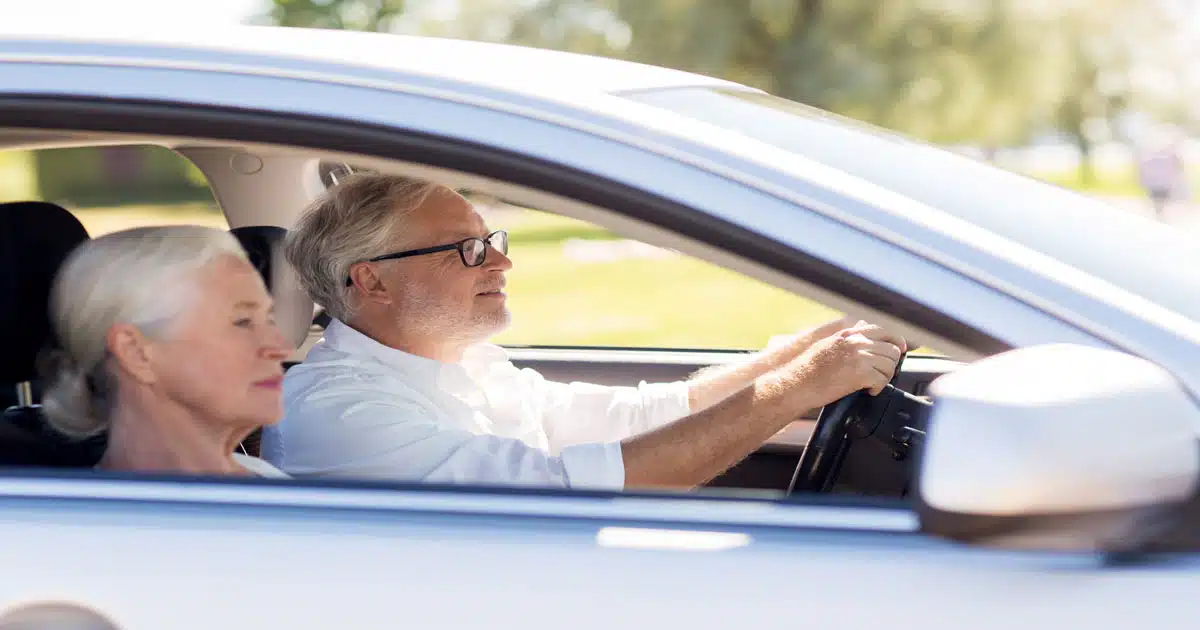According to the United States Census Bureau, older adults are projected to outnumber children for the first time in our nation’s history by the year 2034. This shift toward an aging population, referred to as “the graying of America” is especially important to consider in the context of motor vehicle safety.
No one is immune to the affects of aging on the body and mind. Starting at age 40 years old, mental acuity and processing gradually slows down, and night vision starts to decline. Around 50 years old, most individuals require glasses, and reaction time decreases.
At age 60 years old, muscle strength and range of motion are reduced by as much as 25 percent. People aged 70 years old and up have a higher risk of several medical conditions that hinder mental and physical fitness, including arthritis, Parkinson’s disease, diabetes, and hypertension.
Medications to manage and treat health conditions in older Americans pose an additional risk, as they can impair judgement, alertness, and reflexes. In 2019 alone, seniors accounted for 20 percent of all individuals who passed away in fatal motor vehicle accidents, according to data from the National Highway Traffic Safety Administration (NHTSA). If you know an older driver, or you want to ensure you take every precaution to drive safely in your golden years, consider these tips.
Drive During the Day
Older adults may have difficulty distinguishing between certain colors, seeing up close, or adjusting to changing levels of light, making it harder to see at night. Cataracts, glaucoma, and other age-related vision problems are also more common in older adults. Senior drivers with any vision issues should wear corrective glasses or contacts, schedule regular eye exams, and stick to driving during the day when visibility is the greatest.
Buckle Up
The seat belt is essential for every passenger, and it is especially important for older drivers and passengers. Aging also affects bones and joints, making them more fragile and susceptible to injury. While a younger person may sustain a car accident without any injuries, an older person is more likely to experience broken bones and other injuries.
Avoid Distractions
Many people experience a decline in mental alertness as they get older. For that reason, it is vital for older drivers to focus all of their attention on safely operating their vehicle, as should drivers of all ages.
A distracted driving collision can happen in as little as two to three seconds. Distractions can be anything from a mobile phone to eating, grooming, or turning to interact with passengers.
Consider Medications
Older drivers who take prescription and over-the-counter medications for any reason should be mindful of any dangerous side effects. They should discuss how medicine affects driving and if taking medications together can cause grogginess, dizziness, and other side effects that interfere with safe driving.
Talk About When to Stop Driving
There is a time when driving becomes unsafe for an older person. While it is not easy to have that conversation, it is important to protect them and others on the road. The goal of this dialogue is to preserve their dignity and their independence while keeping them safe.
Cite certain behaviors or events, always focusing on the facts. You can suggest they have a physical exam, a vision test, or a driving evaluation. In some states, these tests are required at a certain age.
Frame the discussion from a place of helpfulness, not shame. Come prepared with a transportation plan that will enable them to do all the things they enjoy and remain active after they stop driving.
Alternatives to driving might include:
- Public transportation.
- Senior shuttles.
- Rideshare services.
- Family, friends, and neighbors.
- Delivery services for food and medication.
What to Do if a Senior You Care About Cannot Safely Drive?
If a senior in your life is reluctant to stop driving, but you feel they are a danger to themselves or others, there are steps you can take. First, see if you can speak with their health care provider about your concerns. The older driver may be more receptive to hearing from a doctor they know and trust to have their best interests in mind.
Car Accidents and Older Drivers
Unlike some states that have requirements in place to retest older individuals’ ability to drive, Delaware does not have procedures in place to assess elderly drivers. It is important to remember that accidents involving older drivers are not always their fault.
After any car accident, those involved should first check everyone for injuries and call 911 if someone is hurt. Wait for police to arrive, provide license, registration, and insurance, and file a police report.
Evidence from the accident scene provides vital clues about how and why the crash happened, so those involved can take the appropriate actions and pursue claims with their insurance company and through the courts if necessary.
Wilmington Car Accident Lawyers at Rhoades & Morrow Advocate for Injured Clients Across the State of Delaware
Whether an old driver caused the accident, or they were injured as a result of a careless driver, legal help may be available. Our Wilmington car accident lawyers at Rhoades & Morrow will protect your rights. Call us at 302-427-9500 or complete our online form to schedule a free consultation. We have offices in Wilmington, Bear, Milford, and Lewes, Delaware. With offices in all three counties of Delaware, we serve clients throughout the state.





